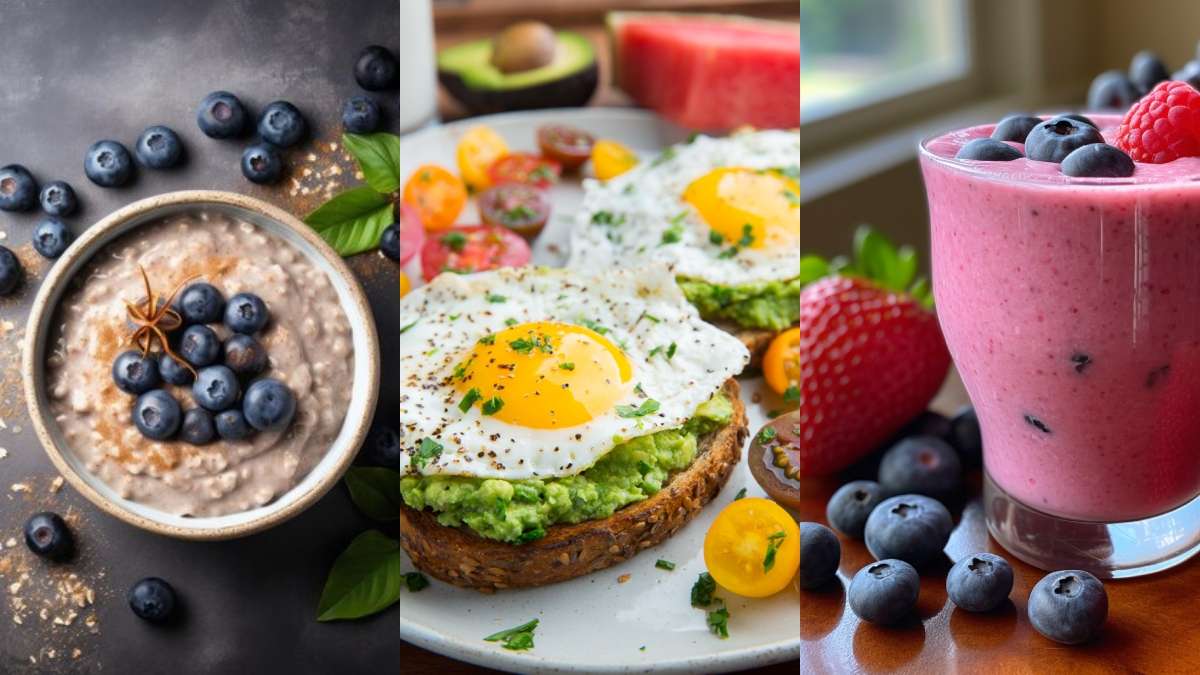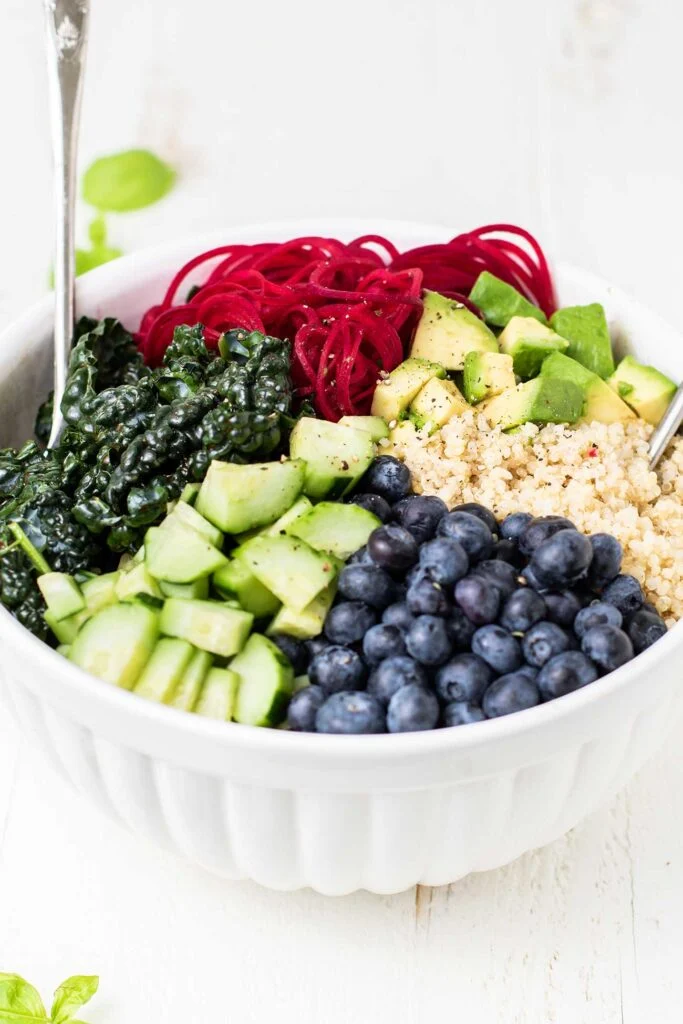
Nutritious Recipes: Your Guide to a Healthier Lifestyle
In today’s fast-paced world, maintaining a healthy diet can often seem like a daunting task. With the abundance of processed foods and sugary snacks readily available, it’s easy to fall into unhealthy eating habits. However, nourishing your body with the right nutrients is essential for overall well-being. This guide will walk you through the importance of nutritious recipes, provide detailed examples of balanced meals, and help you make informed choices about what you eat. Let’s dive into a world where healthy eating is not only achievable but enjoyable.
Why Nutritious Recipes Matter
Nutritious recipes are not just about counting calories; they are about providing your body with the essential nutrients it needs to function optimally. A well-balanced diet rich in vitamins, minerals, fiber, and antioxidants can help prevent chronic diseases, boost your immune system, improve mental clarity, and increase your energy levels.
According to the latest research, diets that are high in fruits, vegetables, whole grains, and lean proteins have been linked to a reduced risk of heart disease, diabetes, and certain types of cancer. Moreover, these diets are often associated with better weight management and improved mental health.
Understanding the Basics of Nutrition
Before diving into specific recipes, it’s important to understand the basics of nutrition. A balanced diet typically includes:
- Carbohydrates: The body’s main source of energy. Opt for complex carbohydrates like whole grains, fruits, and vegetables that are rich in fiber and provide sustained energy.
- Proteins: Essential for building and repairing tissues. Include a variety of proteins such as lean meats, fish, eggs, legumes, and nuts.
- Fats: Not all fats are bad. Healthy fats from sources like avocados, nuts, seeds, and olive oil are vital for brain health and hormone production.
- Vitamins and Minerals: Micronutrients that support various bodily functions, from bone health to immune support. Ensure your diet includes a rainbow of fruits and vegetables to cover a broad spectrum of these nutrients.
- Water: Often overlooked, hydration is crucial for digestion, circulation, and temperature regulation. Aim for at least 8 glasses of water a day.
The Importance of Meal Planning
Meal planning is a powerful tool that can help you stay on track with your nutritional goals. It involves organizing your meals in advance, which can save time, reduce food waste, and ensure you have healthy options available.
Start by creating a weekly menu that includes breakfast, lunch, dinner, and snacks. Focus on incorporating a variety of foods to ensure you get a wide range of nutrients. Batch cooking or prepping ingredients ahead of time can also make it easier to stick to your meal plan.
Nutritious Breakfast Ideas

Breakfast is often referred to as the most important meal of the day, and for good reason. A nutritious breakfast can kickstart your metabolism, provide you with the energy you need to start your day, and prevent overeating later on. Here are some healthy breakfast options:
- Overnight Oats: A versatile and easy-to-make breakfast option. Combine rolled oats, chia seeds, almond milk, and a dash of honey in a jar. Top with your favorite fruits, such as berries or sliced bananas, and let it sit in the fridge overnight. In the morning, you have a ready-to-eat, nutrient-packed meal.
- Avocado Toast with Eggs: Whole grain toast topped with mashed avocado, a sprinkle of salt and pepper, and a poached or scrambled egg. Avocado provides healthy fats, while the egg offers a good source of protein.
- Smoothie Bowl: Blend spinach, frozen berries, banana, and a scoop of protein powder with almond milk. Pour the smoothie into a bowl and top with granola, chia seeds, and sliced fruits. This breakfast is packed with antioxidants, fiber, and protein.
- Greek Yogurt Parfait: Layer Greek yogurt with fresh fruits, a drizzle of honey, and a handful of nuts or seeds. Greek yogurt is rich in probiotics and protein, making it a great choice for gut health and muscle repair.
Nutritious Lunch Ideas
Lunch is an opportunity to refuel and sustain your energy levels through the afternoon. Here are some nutritious lunch ideas that are easy to prepare and full of flavor:
- Quinoa Salad with Grilled Chicken: Combine cooked quinoa, diced grilled chicken, cherry tomatoes, cucumbers, and avocado. Toss with a lemon vinaigrette dressing. Quinoa is a complete protein and a great source of fiber, while chicken adds additional protein.
- Vegetable Stir-Fry with Tofu: Stir-fry a mix of colorful vegetables like bell peppers, broccoli, and carrots in a sesame oil and soy sauce blend. Add cubed tofu for a plant-based protein option. Serve over brown rice or quinoa for a satisfying meal.
- Turkey and Avocado Wrap: Use a whole grain wrap and fill it with slices of turkey, avocado, lettuce, and a drizzle of mustard or hummus. This wrap is a perfect balance of protein, healthy fats, and fiber.
- Lentil Soup: A warm and comforting option, lentil soup is rich in protein, fiber, and iron. Cook lentils with carrots, celery, onions, and tomatoes. Season with herbs like thyme and bay leaves for added flavor.
Nutritious Dinner Ideas
Dinner is a time to relax and enjoy a wholesome meal that nourishes your body. Here are some nutritious dinner ideas:
- Baked Salmon with Asparagus: Salmon is an excellent source of omega-3 fatty acids, which are crucial for heart health. Bake a salmon fillet with lemon slices, garlic, and olive oil. Serve with steamed asparagus and a side of quinoa or wild rice.
- Stuffed Bell Peppers: Fill bell peppers with a mixture of ground turkey, brown rice, black beans, and diced tomatoes. Top with a sprinkle of cheese and bake until the peppers are tender. This dish is packed with protein, fiber, and vitamins.
- Zucchini Noodles with Pesto: For a low-carb option, swap traditional pasta with zucchini noodles. Toss the noodles with homemade pesto sauce made from basil, pine nuts, garlic, olive oil, and Parmesan cheese. Add grilled chicken or shrimp for extra protein.
- Chickpea and Spinach Curry: A plant-based meal that’s full of flavor and nutrients. Sauté onions, garlic, and ginger in coconut oil, then add chickpeas, spinach, and a can of coconut milk. Season with curry powder, turmeric, and cumin. Serve over brown rice or quinoa.
Nutritious Snack Ideas
Healthy snacks are essential for keeping your energy levels stable throughout the day. Here are some nutritious snack options:
- Hummus with Veggies: A classic snack that’s easy to prepare. Pair hummus with sliced cucumbers, carrots, and bell peppers for a crunchy and satisfying treat.
- Almonds and Dark Chocolate: A handful of almonds paired with a piece of dark chocolate is a perfect balance of healthy fats and antioxidants. Just be mindful of portion sizes to avoid excess calories.
- Greek Yogurt with Berries: A quick and easy snack that’s high in protein and antioxidants. Simply top a serving of Greek yogurt with fresh or frozen berries.
- Apple Slices with Nut Butter: Slice an apple and dip the slices in almond or peanut butter. This snack provides a good mix of fiber, protein, and healthy fats.
Special Diet Considerations
If you have specific dietary needs or preferences, such as gluten-free, vegetarian, or vegan diets, there are still plenty of nutritious recipes you can enjoy. Here are some examples:
- Gluten-Free: For those with gluten sensitivities or celiac disease, focus on naturally gluten-free foods like fruits, vegetables, lean proteins, and gluten-free grains like quinoa and rice. Recipes like gluten-free banana pancakes or grilled chicken with sweet potato fries are both delicious and safe options.
- Vegetarian: A vegetarian diet can be rich in nutrients if properly planned. Include a variety of plant-based proteins like beans, lentils, tofu, and quinoa. Recipes like vegetable stir-fry, lentil soup, and spinach and feta stuffed mushrooms are nutritious and satisfying.
- Vegan: A vegan diet excludes all animal products, but that doesn’t mean you have to miss out on nutrients. Focus on whole foods like fruits, vegetables, nuts, seeds, and legumes. Vegan recipes like chickpea curry, tofu scramble, and black bean burgers are full of flavor and nutrients.
The Role of Superfoods

Superfoods are nutrient-dense foods that offer a variety of health benefits. Incorporating superfoods into your meals can boost your nutrient intake and support overall health. Here are some popular superfoods to include in your diet:
- Blueberries: High in antioxidants, vitamins, and fiber. Add them to smoothies, oatmeal, or salads for a nutritious boost.
- Kale: A leafy green packed with vitamins A, C, and K, as well as fiber and antioxidants. Use kale in salads, smoothies, or as a base for grain bowls.
- Chia Seeds: Rich in omega-3 fatty acids, fiber, and protein. Sprinkle chia seeds on yogurt, oatmeal, or blend them into smoothies.
- Quinoa: A complete protein that is also high in fiber and various vitamins and minerals. Use quinoa as a base for salads, bowls, or as a side dish.
- Salmon: An excellent source of omega-3 fatty acids, which are important for heart health and brain function. Incorporate salmon into your diet through dishes like baked salmon, salmon salads, or salmon stir-fry.
The Importance of Moderation
While it’s important to focus on nutritious foods, it’s also essential to practice moderation. Eating healthy doesn’t mean you have to completely eliminate your favorite treats. Instead, aim for balance by enjoying indulgent foods in moderation and pairing them with healthier options.
For example, if you’re craving a slice of pizza, consider pairing it with a side salad to add more nutrients to your meal. Or, if you have a sweet tooth, try making a healthier dessert, such as a fruit parfait or dark chocolate-dipped strawberries.
Conclusion: Making Nutritious Eating a Lifestyle
Transitioning to a diet rich in nutritious foods doesn’t have to be complicated or restrictive. By understanding the basics of nutrition, planning your meals, and incorporating a variety of foods into your diet, you can nourish your body with the nutrients it needs to thrive.
Remember, the key to maintaining a healthy diet is consistency. Make small, gradual changes to your eating habits and find recipes that you enjoy. Over time, these changes will become part of your lifestyle, leading to better health and well-being.
By following this guide and incorporating these nutritious recipes into your daily routine, you’ll be on your way to a healthier, more balanced life.


